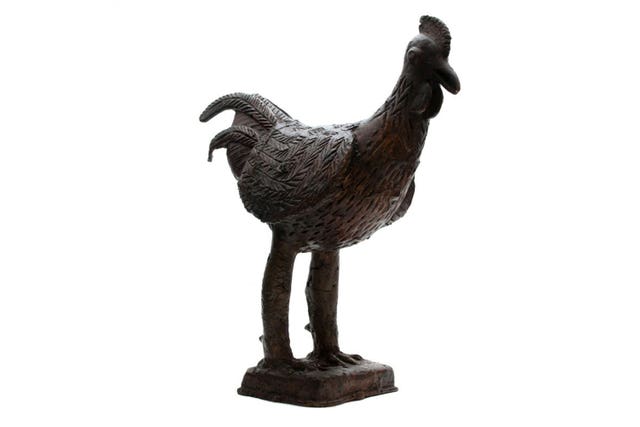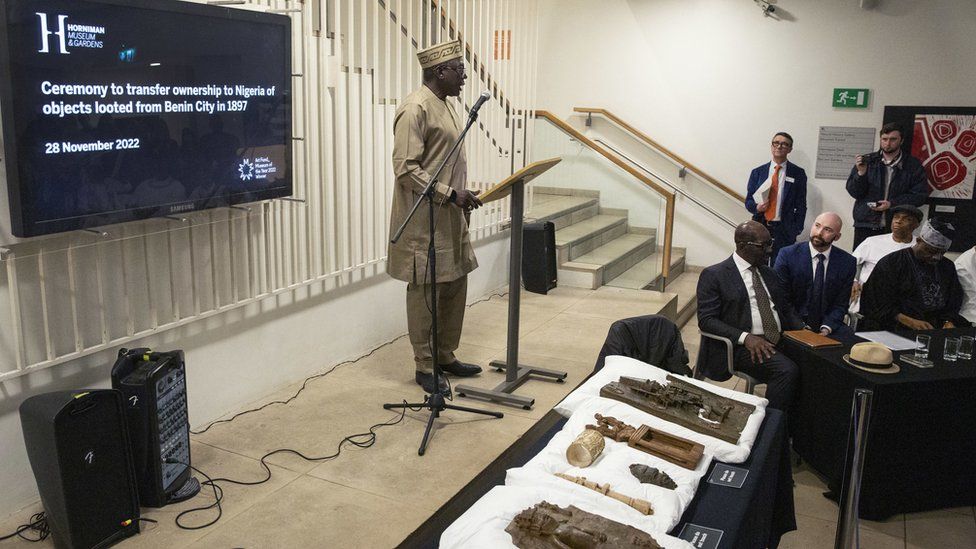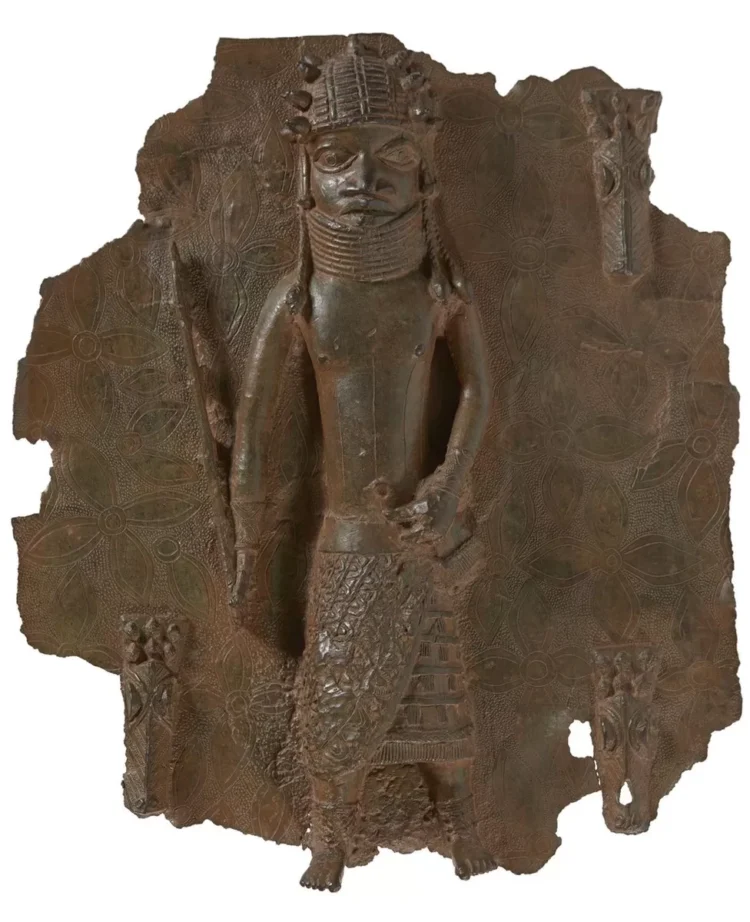By Gabriel Princewill-
A museum in south-east London has begun the official process of returning looted Benin bronzes to Nigeria.
The Horniman Museum, which houses a collection of 72 treasured items that were forcefully taken from Benin City in 1897, has officially handed over ownership of the artefacts to the Nigerian government on Monday in a significant move.
The artefacts were stolen by explorers and the colonial masters of the Benin Kingdom, now southwestern Nigeria, and are among Africa’s most significant heritage objects.
The Benin king at the time was exiled, and all their royal treasures confiscated and sent to various museums around the world. They comprised the bragging rights of the imperialistic outlook of the British Empire.
Stolen bronzes have for decades remained on display at museums in the United Kingdom, Germany, Austria and the United States, with calls for their return fiercely resisted over the years, although a few countries returning some artefacts in small doses.
Among the arguments to explain the refusal to return stolen artefacts is the fear of the cumulative effects of such demands from other countries.
A prevailing argument by some academics is that the fact this generation were not perpetrators of the deplorable theft over a century ago, makes them not culpable even if they are beneficiaries of those atrocities.
However, the mere fact the origin of the artefacts is incontrovertible has paved the way for the physical repatriation of some of these stolen goods.
Return
Speaking at the Smithsonian Institution in Washington, which returned 29 bronzes to Nigeria, Minister of information and Culture, Lai Mohammed said: “It’s not if, it’s when. They will eventually have to return these because the campaign is gaining strength by the day and, when they look at what other museums are doing, they will be compelled to return them,
The Horniman described returning the looted objects as a “moral and appropriate” response following a request from Nigeria’s National Commission for Museums and Monuments (NCMM).
The first six objects which are being returned – including two “Benin Bronze” plaques from the royal palace – were handed to Nigerian officials at a ceremony marking the transfer of ownership of 72 looted items.

Stolen Bronze: HONEYMAN MUSEUM AND GARDENS
Asked by journalists ahead of the official handover if they were frustrated at the British Museum’s apparent reluctance to hand over the 900 objects it has held for more than a century.
Mr Merriman, who said the Horniman had been an “excellent example” of leadership, stated: “Journalists who ask me about the Benin return always want to ask me about the British Museum.
“I would rather talk about what an excellent example the Horniman is, rather than answer questions about the British Museum.”
A new agreement between the NCMM and the Horniman is expected to allow the remainder to stay in the UK on loan for now, with a second phase of physical repatriations to follow in due course.
Professor Tijani later explained that about 5,000 Benin bronzes are currently “scattered” around the world.

Professor Abba at signing ceremony Image: PA
Appeal
Professor Tijani later said he does not go to the British Museum to see the treasured artefacts there because that process “is giving me high blood pressure”.
He added: “I keep on appealing to them to really look at this (return of items) and let us discuss.
“At the end of the day they will still have some objects on loan which they will continue to display.
He said he feels a sense of “relief” when he looks at the Horniman objects that are being returned.
Prof Tijani said: “I feel that the right thing has been done and the Benin people and Africa have the opportunity to see and interact with these objects that they have not been able to do for many decades.”
He noted that “if this invasion had not taken place, these objects would still be in Nigeria”.
These objects were “illegally taken out” of the Benin kingdom at a time when it was a sovereign entity and is now part of Nigeria.
He expressed optimism that other countries like Germany and the U.S will follow the example of this museum, as he called for the institutions who have them should “do the right thing” and send them back, he said.
Prof Tijani added: “What is the benefit to Nigeria? What is the benefit of this to humanity? We are not looking at monetary value. We are not looking at what will be accrued.
“We are looking at them doing the right thing and (for us) to continue our collaboration.
“These objects are going to be there in Nigeria for people to have the opportunity to understand and learn of their heritage and about their past. If there are any individuals who are associated with this history or heritage, of course, they will feel that the right thing has been done.”
Wholesale Restitution
In 2018, a new report commissioned by the French government called for wholesale restitution of artifacts seized during the colonial era.
The recommendation from academics Felwine Sarr and Benedicte Savoy, prompted by President Emmanuel Macron’ estimated 90,000 artifacts of sub-Saharan African origin held at French institutions.
The academics called for key, symbolic pieces long sought by claimant nations should be immediately returned – including several French-held Benin bronzes.
The report also proposed a series of bilateral agreements between the French government and African states to bypass French laws barring museums from releasing their collections, which have proved a longstanding barrier to restitution. Steps are being taken in that direction, but it remains to be seen how far France will go in practise to ensure the restitution it has endorsed.
France has so far returned 26 objects stolen from an Ancient Palace in Benin, Including a Throne, Altars, and Ornate Doors. Large royal statues from the kingdom of Dahomey, Benin dating to 1890–92 at the Musée du Quai Branly, Paris have been returned.
The 26 items from the kingdom of Dahomey were among 70,000 other objects in the Quai Branley’s collection that originally came from countries in Africa. The trove includes the throne of Behanzin, the last king of Dahomey, three totems, four ornate palace doors, several altars, and three warrior dance staffs.




